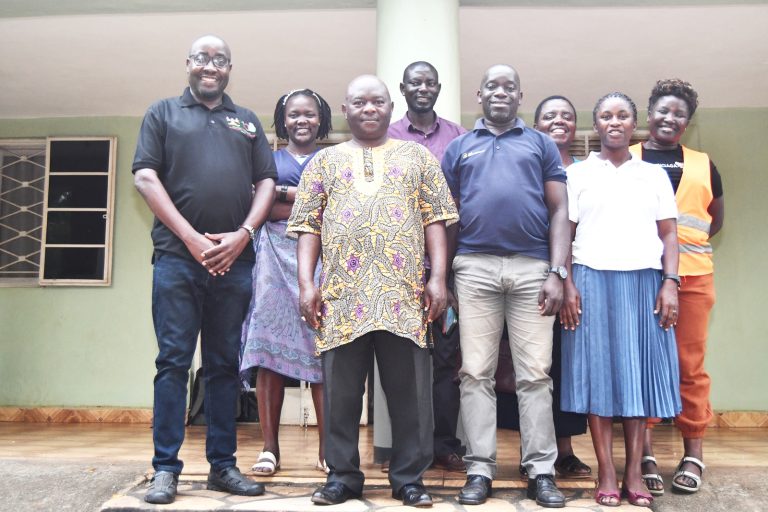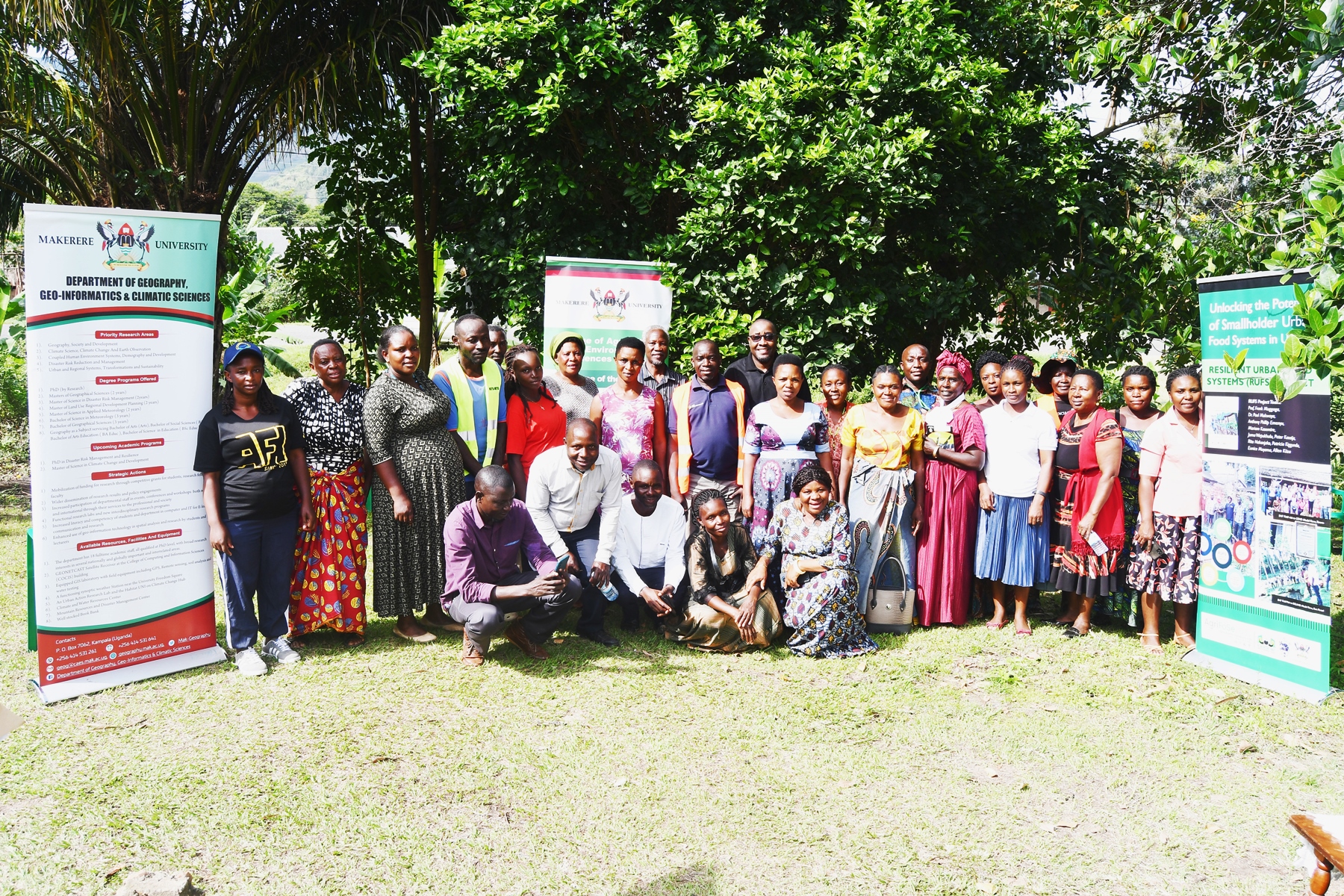
Smallholder farmers across the globe are increasingly confronted with the dual challenges of water-related stresses, ranging from devastating floods to prolonged droughts. These cyclical extremes threaten livelihoods, food security, and sustainable agricultural productivity. To effectively address these challenges, it is essential to implement resilient, integrated strategies that recognize the complex and fluctuating nature of water availability.
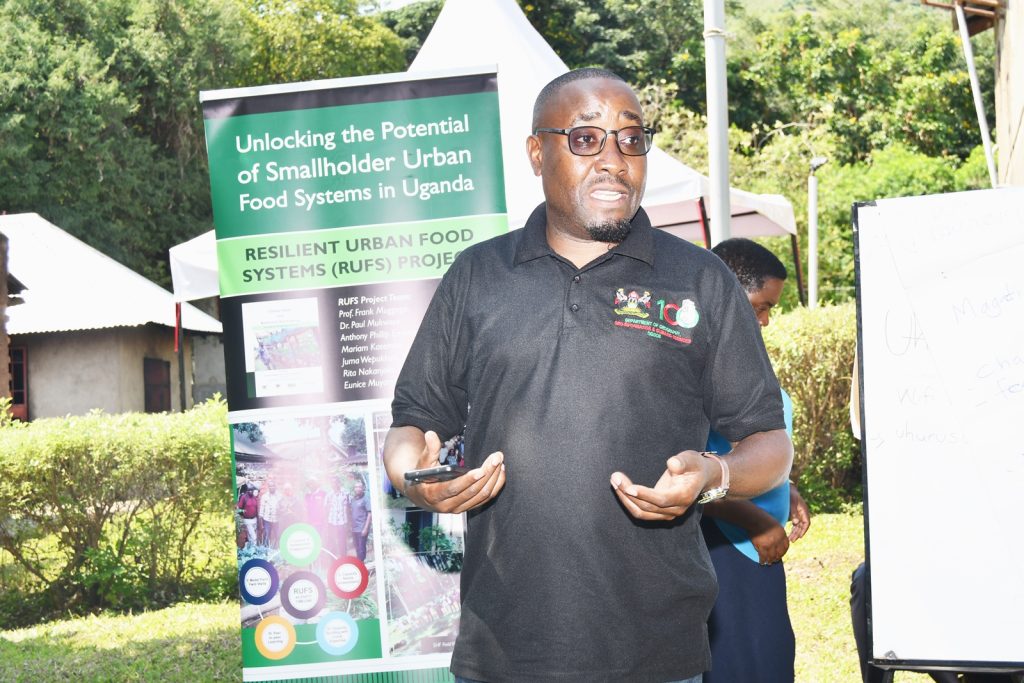
The Resilient Urban Food Systems (RUFS) project promotes innovative approaches that empower smallholder farmers to better manage water resources by capturing and storing excess water during periods of abundance, efficiently utilizing limited water supplies during dry spells, and building adaptive capacity to withstand and recover from extreme weather events. Through these solutions, RUFS helps create a foundation for sustainable farming that not only mitigates risks but also enhances productivity and long-term resilience in vulnerable agricultural communities.
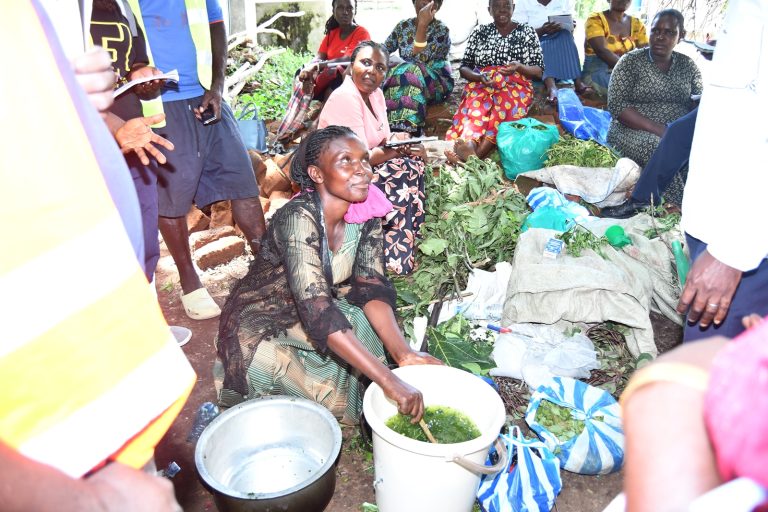
Under the initiative titled “Strengthening Urban Food Systems Resilience to Flood and Drought Risks through New Strategic Partnerships: Consolidating Gains from the RUFS Project in Kasese Municipality and Mbale City, Uganda,” the team conducted an intensive two-day training workshop for smallholder farmers in Kasese Municipality. The workshop aimed to equip farmers with practical skills and knowledge, specifically in the production of organic pesticides and fertilizers, to enhance their adaptive capacity.
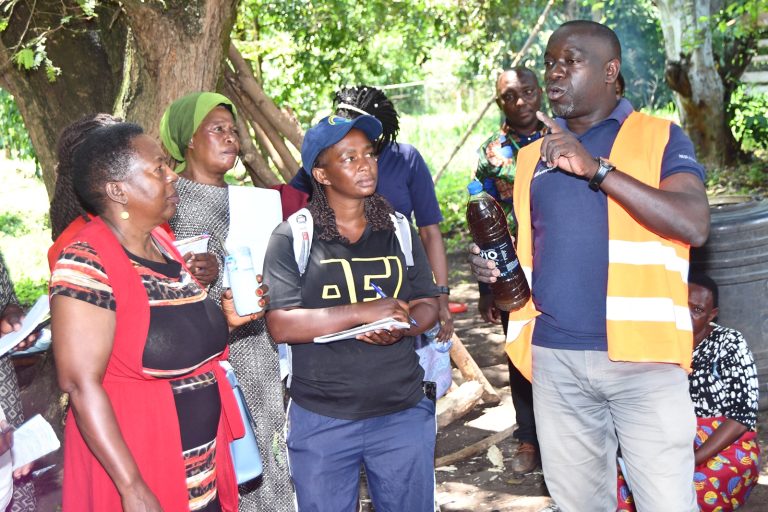
Conducted on 13th and 14th October 2025 at the residence of Bishop Stephen Nsibambi on Kilembe Road, Kasese Municipality, the training built upon insights and outcomes from the inception meeting of the RUFS Phase II held 18th–21st August 2025. The initiatives under Phase II of the RUFS Project aim to reduce damage from natural hazards, improve drainage and water storage, conserve soil moisture, decrease reliance on rainfall, and ultimately bolster resilience against water-related extremes.
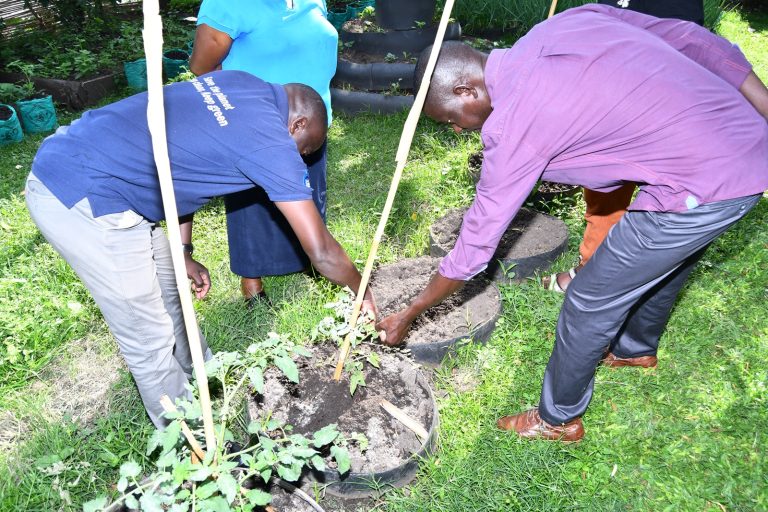
The project is led by Prof. Frank Mugagga from the Department of Geography, Geo-Informatics, and Climatic Sciences at Makerere University, and funded through the AgriFoSe2030 Programme.
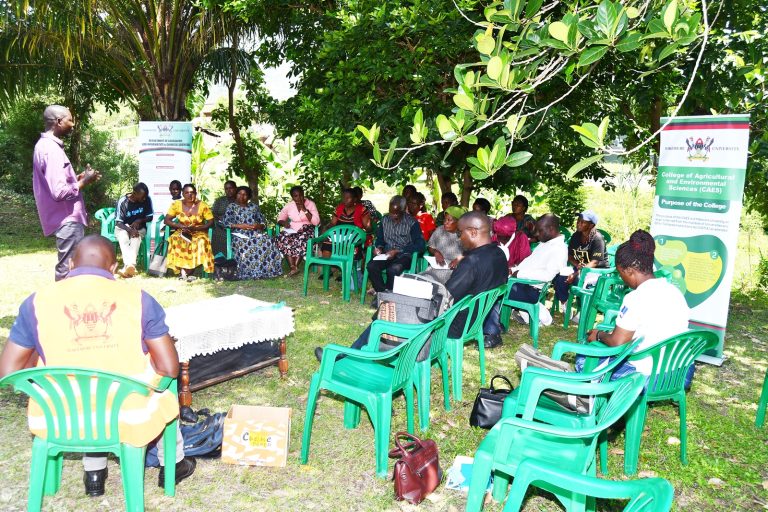
Achievements Registered from the Workshop
The training enhanced the resilience of smallholder farmers by equipping them to better withstand natural hazards, with a special focus on reducing their vulnerability to floods and droughts. The two-day workshop concentrated on the production and use of pesticides and fertilizers derived from locally available, nutrient-rich plants such as Tithonia (Kimyula), Wandering Jew (Naanda), Amaranthus spp. (Ddodo), Black Jack (Sere), and Phytolacca (Luwoko). It also covered the use of ash, animal and human urine, as well as techniques for harvesting and purifying rainwater.
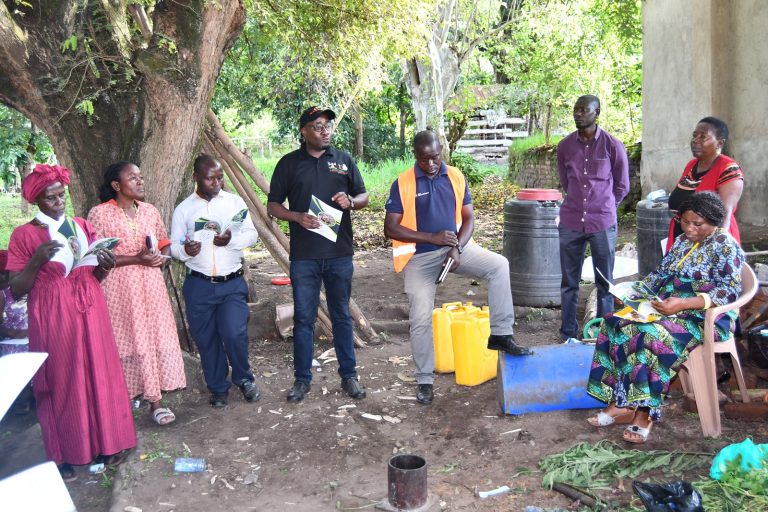
Specifically, smallholder farmers in Kasese Municipality gained practical skills in the production of natural, effective plant teas using decomposing and hairy plants combined with ash, an eco-friendly method to enrich soil sustainably. They were trained in rainwater harvesting through trench digging and other methods, as well as rainwater purification using charcoal. Additionally, the farmers were taken through the process of producing fertilizers using a mixture of cowdung, water and ash, as well as human urine and locally available plants. Furthermore, farmers learned to make organic pesticides from readily available materials such as ash, animal urine, onions, papaya leaves, water, pepper, and soap.
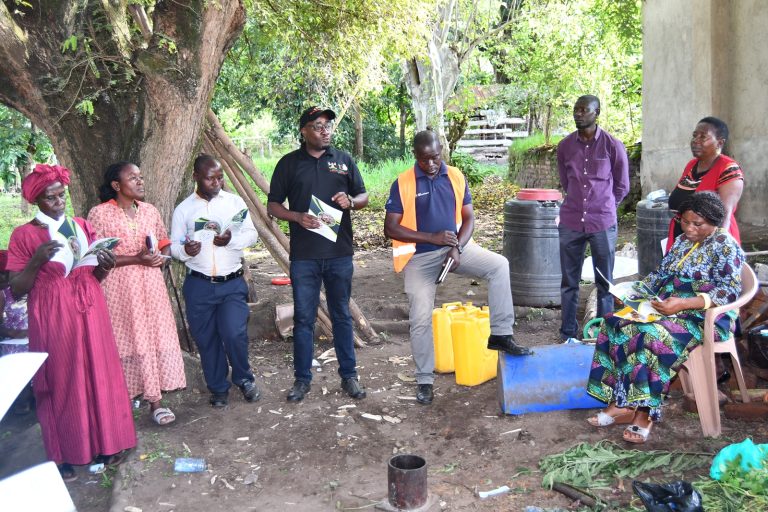
Overall, the training promoted sustainable, eco-friendly farming practices while strengthening smallholder farmers’ skills in pest management and climate-resilient agronomic techniques. It was led by Mr. Henry Stanley Mbowa, Head of Research at AidEnvironment and a member of the RUFS Project.
Insights from the farmers’ representative
Mr. Sunday Salveri, a dedicated smallholder farmer from Kasese, highlighted the critical role of active farmer participation in forming and sustaining a farmer group and association. In his address, he urged fellow farmers to become more engaged and take proactive steps to improve their livelihoods through active group participation. He emphasized that increased involvement is essential for maintaining a vibrant, effective group that benefits all members. Mr. Salveri also encouraged more farmers to join the group, viewing collective effort as key to achieving economic sustainability. “Expanding membership is vital for the association’s growth and resilience,” he noted.
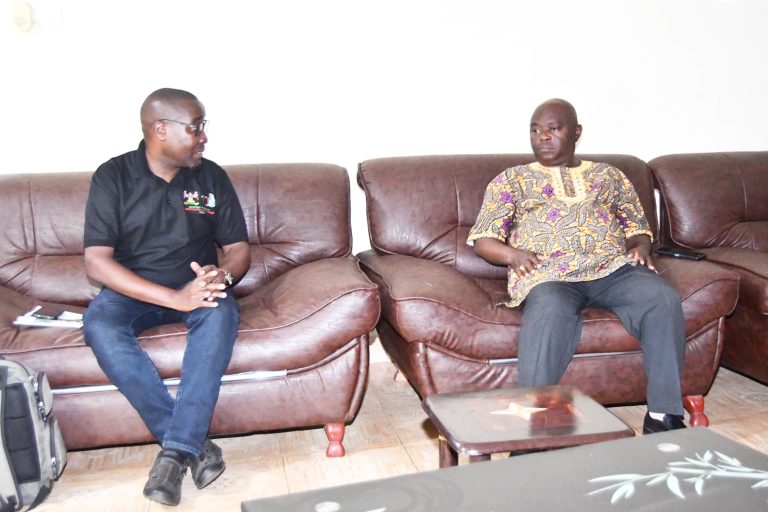
Furthermore, Mr. Salveri stressed the importance of applying practical business lessons learned on the ground. He suggested that farmers produce fertilizers and pesticides themselves as a way to both generate income and reduce costs for members. To facilitate knowledge sharing and skill development, he proposed establishing a demonstration site to train other farmers. Recognizing the role of family support, Mr. Salveri emphasized involving family members in these activities, highlighting that their participation is crucial for the long-term success and sustainability of agricultural endeavors.
He underscored the need to think beyond agriculture, advocating for the continued existence of the cluster and the RUFS initiative. He expressed hope that these efforts will bring sustained benefits to farmers and their families.
Courtesy Call
The RUFS team paid a courtesy call on the Bishop of Rwenzori region – Lord Nason Baluku who appreciated the team’s efforts. The meeting provided an opportunity to strengthen relationships and reaffirm mutual commitment toward the initiatives.
